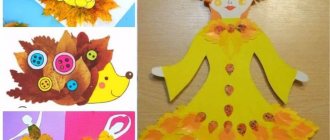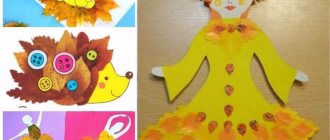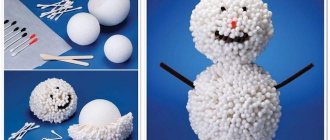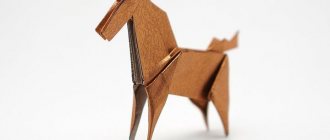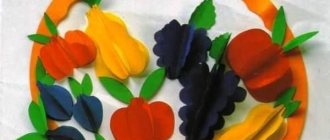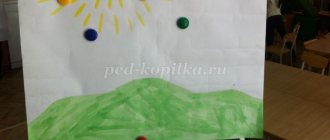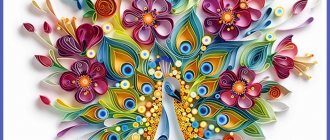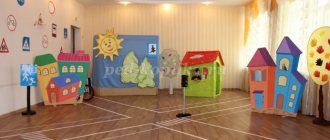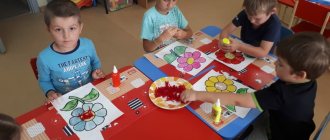Children's entertainment portal
- home
- Games
- Coloring pages
- Poems and fables
- Songs for children
Recent Entries
- Dressing up Dottie. Doctor Plyusheva
- Doctor Plyusheva and Lammy the Sheep
- Dressing up Doctor Plush
- Clinic of Doctor Plusheva
- Doctor Plyusheva treats the sheep Lammy
Our town
- City map
- Library
- Kindergarten
- Playground
- School of Music
- central square
- Drawing school
Join us!
Pantry
On the topic: methodological developments, presentations and notes
This presentation is a methodological material in addition to generalized pedagogical experience and contains images of different varieties of apples. It can be used in a comprehensive manner.
Program content: 1. Reinforce counting in twos, learn to determine the number of objects when counting in twos.2. Reinforce the concepts of “big, small”; clarify children's ideas about the properties of pre.
Theatrical production based on the fairy tale “The Apple”.
A lesson in the middle group aimed at perceiving texture in book illustrations for its subsequent transfer in their drawing works.
.Link to view the cartoon and the creative process of its creation.
The notes were compiled for a competition within the kindergarten. When compiling, I used material from this site (summary “Airplanes”).
The sketch “Forest Apples” was written for children of senior preschool age for the autumn holiday “Fair in the Forest”. The skit involves children playing the roles of forest animals. Staging a skit requires the teacher.
Source
Coloring pages for children - Fruits and vegetables
Simple coloring pages for kids. In this section we will learn how to color vegetables and fruits.
These are the very first coloring books for your little ones. There are no complex shapes or contours here. The picture shows one item that is already well known to the baby. A simple figure and a minimum of details - only under this condition will your child’s attention not be distracted, and his imagination and motor skills will develop.
In order to save a picture on your computer, right-click on it and select “SAVE PICTURE AS”.
Rate the article!
Children's entertainment portal City of Children - children's games, coloring pages, rhymes
Information for parents | Copyright
Volumetric applique Fruits made of colored paper for the older group of kindergarten
Paper crafts for middle-senior kindergarten children
Master class with step-by-step photos “Volume application “Fruit plate””
Author: Svetlana Vladimirovna Buzmakova, teacher at the kindergarten No. 88, Berezniki, Perm Territory Goal: Creating a plate of fruit using the 3D appliqué technique. Objectives: 1. Develop the skills and abilities of creating three-dimensional appliqué. 2. Develop the child’s fine motor skills. 3. Develop the child’s creative abilities through the creation of applications. 4. Strengthen the technical skills of cutting and gluing parts. 5. Instill the skills of perseverance and accuracy Description: The master class will be of interest to educators, additional education teachers, and all attentive and interested parents. The work can be completed by children of the middle or senior group. All children and adults love fruits. They are not only tasty, but also very healthy. How beautiful it is, the summer garden, always rich in fruits. There is a whole row of slender cherries - the berries burn like rubies. A plum tree also grows nearby, and is beautiful with its juicy fruits. The aroma of pears and apples, everyone would be happy to eat one. Oh yes pear! What a wonder! And blush and beautiful. The pear begs: “Eat me, Vanyusha.” Our dear apple, ours, in bulk. It will grow in our garden, I will go for it in the fall. Purple plum, Ours is a garden plum, Tasty, tender, Very healthy. We can also make jam from ripe plums! Grapes, grapes, Many berries in a row Grew on a branch - Lunch, kids! Now we will make a beautiful plate of fruit.
For this we will need: 1. Colored paper; 2. Paper plate; 3. Glue; 4. Scissors.
We are preparing templates for apples, pears, grapes, plums and leaves for them. Take a sheet of A5 paper and fold it in half and in half again. We trace the fruit patterns.
If children are small and cannot yet carefully trace the template, then it is better to make the blanks yourself. For each fruit we need 4 parts.
We fold each piece in half.
Apply glue to one of the halves and glue them together so that the other halves remain free. Glue the 4 halves of the pear together.
We do the same with all other fruits. Cut out the details.
Fold in half.
Glue the halves together.
We unfold all the fruits, making them voluminous. Cut out leaves from green paper.
Place the fruit on a plate, adding green leaves.
We put a beautiful plate on the table. Bon appetit. We sat down at the table, put on our aprons, and we will eat fruit - delicious food.
We recommend watching:
Do-it-yourself voluminous applique for kindergarten from colored paper. Apple Volumetric applique with origami elements for children of the middle and senior group of kindergarten Do-it-yourself summer volumetric applique for kindergarten. Senior preparatory group Composition of Fruits using quilling technique. Master class with step-by-step photos
Similar articles:
DIY paper pig
Cherry applique
And another applique with the image of delicious cherries.
Having mastered this simple technique, you can make applique with your child of absolutely any fruit, berries and even vegetables. The main thing is to choose the right color and cut out the desired shape.
Strawberry applique
The principle of making this application is similar to the previous one. The only difference is to cut out the correct shape. This time the shape will resemble an oblong heart (see photo).
Decorate the finished applique with leaves (template included) and seeds drawn with a black marker.
GCD. Topic: “Into the forest for berries” Design in the senior group
Goal: To develop children’s knowledge about berries.
Tasks:
- Clarify and consolidate the idea of their growth and appearance.
- Develop imagination and resourcefulness while constructing from different types of construction sets.
- Foster a caring attitude towards nature.
Progress of classes:
- Motivation.
— Guys, today I received an unusual letter from the forester of our Samara forest. In the letter, the forester asks to help him pick berries in the forest (the letter is read out).
— Do you agree to help our forester? (Yes.)
- Well then, let’s go to the forest to pick berries. Before we start our journey, let’s remember how to behave in the forest (children say the rules of conduct in the forest:
- Don't break branches.
- Don't destroy birds' nests.
- Don't throw trash.
- Be careful with fire when starting a fire.
— The phonogram “Sounds of the Forest” plays. Children enter the forest and see a river in front of them.
- How can we get to the other side? (Build a bridge, raft, boat).
— I propose to build a bridge and a raft from a large Leko construction set, but for this you need to divide into two groups: the first team builds a bridge, the second a raft (children construct).
— How many designer parts did you use during construction (counting items by color and quantity).
Have we solved this problem? (Yes.) We go further in search of berries.
What time of year is it now? (Autumn.)
- Yes, guys, the cold weather will come soon and it will be difficult for the forest dwellers, but we can help them - we will build bird feeders (construction from a medium construction set).
- Well done guys, you are probably very tired, let's take a break.
Game "Cook a forest lunch." (Children construct from LEGO sets.)
“And now each team will tell you what they prepared for the forest lunch.” (Children tell what they designed.)
The journey for berries continues! Tell me what kind of berries there are in the place where they grow. (Garden and forest.)
—What is their difference? (Garden trees are cared for by humans, forest trees grow on their own, nature takes care of them.)
— What wild berries do you know? (Lingonberries, blueberries, strawberries, blackberries, raspberries, viburnum, cranberries.)
—Are all the berries edible? (No, there is a poisonous one, a wolf one.)
- What is a berry? This is an amazing delicacy, a small juicy fruit of small shrubs and herbaceous plants (slide show).
— How does a person use the berry? (Children's answers.)
When the berries ripen, and this is from June to November, berry growers have a lot to do. The berries need to be collected, sorted, washed and immediately made into jam, jam, compote, juice.
D/i “Jam” (raspberry jam? – raspberry, blueberry jam? – blueberry).
- Guys, what do you use to pick berries? (Basket, basket, box, bucket, etc.)
- And now we will make our own basket for picking berries. (Froebel’s construction set according to the diagrams is assembled by each team.)
After construction, children discover a berry meadow. (They put hats in the shape of berries on their heads and stand by their baskets and start a round dance to the music.)
Reflection:
- Guys, what did we do today? (Children's answers.)
The phone rings – the forester’s words of gratitude.
Thanks guys, it's time for us to go to kindergarten.
